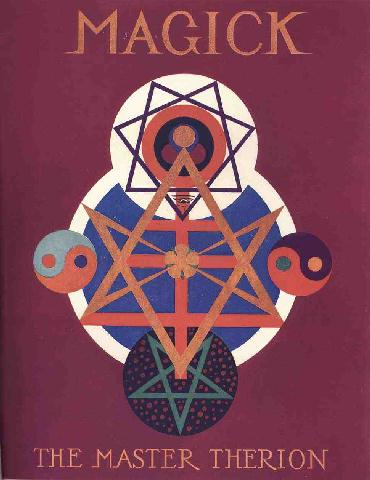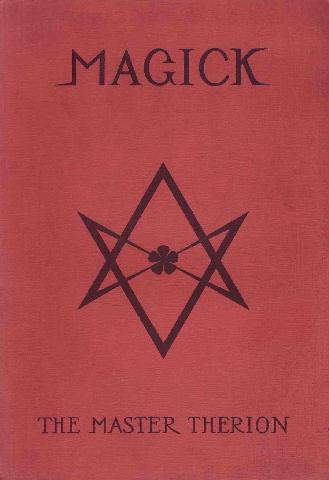

The modern practice of Magick probably owes more to Aleister Crowley than to any other single person.
Aleister Crowley was born on 12th October 1875 and was brought up in a strict Quaker background, his parents belonging to a group known as the "Plymouth Brethren". His only permitted reading as a child was the Bible.
Crowley studied Chemistry at Kings College London before going on to Trinity College, Cambridge. He was a competent mountaineer at a time when the sport was in its infancy as well as being an accomplished player of chess. It was on one of his mountaineering expiditions that he met Julian L. Baker, a chemist with an interest in alchemy. Crowley was, at this time, interested in Magick and the occult having become disenchanted with the religion of his parents and having taken to reading several books on the subject of occultism and the Qabalah. Through Baker he was introduced to George Cecil Jones through whom he gained membership of the Hermetic Order of the Golden Dawn, an occult society based loosely around the structure of Freemasonry.
In 1900, Crowley travelled to Mexico where he took up the serious pursuit of Magick. It was while in Mexico that he met Oscar Eckenstein who introduced him to the idea of controlling the mind with the techniques of yoga. For a good deal of time the practice of yoga became the major occupation of the young Crowley.

On March 16th 1904 in Cairo, after a period of two years or so when Crowley had done little in the way of either Magick or yoga, he began a series of invocations with the object of amusing his wife by showing her the sylphs (elemental spirits of Air). His wife (Rose Edith Kelly) did not admit to seeing any sylphs but started to say repeatedly "they are waiting for you". In the days that followed, further rituals were performed with Rose saying "It is all about the child" and "all Osiris". Later she revealed that, according to Crowley's diary, the "waiter was Horus".
Through all of this period, Crowley remained somewhat cynical about his wife's new found clairvoyance with most of his diary entries having a very sceptical tone. In order to test her out, Crowley quizzed Rose about the qualities of Horus. To every question out of twelve, Rose answered correctly without having had any prior interest in matters occult or mythological. Crowley estimated the chances of her getting all of these right at around 21 million to one. To continue this test, Crowley took herto the museum at Bulaq which they had not previously visited and asked Rose to point out to him an image of Horus. She identified a case at some distance. On closer examination, the stele it contained did indeed portray Horus in the form of Ra-Hoor-Khuit. Furthermore, the number of the stele was 666, a number that Crowley had taken for himself, as the Great Beast Therion, many years before.
On the 7th April 1904, Rose told Crowley that he must be present in the "temple" at midday on the following three days and to write what he should hear finishing at 1:00pm on each day. There he heard the voice of "Aiwass" and took down the three chapters of the "Book of the Law" or "Liber AL". His initial reaction to the book was not positive. It was sixteen years before he came to see it as containing any useful message but after this time he took it up wholeheartedly and followed the messages within the book concerning its distribution.
The Book of the Law is often cited as being one of the most important documents associated with Crowley (although, as he always asserted, not written by him). It contains the essence of his later philosopy "Do What Thou Wilt Shall be the Whole of the Law, Love is the Law, Love under Will.", the law of Thelema.


Crowley was a prolific writer and published many books on a variety of subjects, mostly on Magick and yoga although he did also write poetry (of a somewhat dubious nature). Most of his books are still in publication now and although being of a slightly difficult style to read are of an order above nearly all of the available books on the subject of Magick today. Recommended titles are "Magick Without Tears", "Magick in Theory and Practice" and "The Book of Thoth".